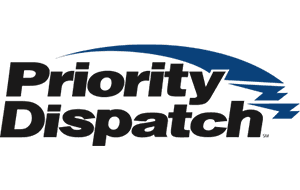
June 10, 2020 | by Admin
Priority Dispatch and PulsePoint Partner to Help 911 Dispatchers Guide Callers to Closest Lifesaving AED
June 23 Webinar to Highlight Best Practices in Dispatching Citizen Response to Sudden Cardiac Arrest
SALT LAKE CITY, Utah—Emergency medical dispatchers across North America can now quickly direct 911 callers during time-critical cardiac emergencies to the closest automated external defibrillator (AED), thanks to the implementation of an AED geolocation plan by Priority Dispatch and the PulsePoint Foundation. The partnership between Priority Dispatch and PulsePoint allows 911 dispatchers to inform callers of the location of AEDs while using existing medical dispatch protocols within Priority Dispatch’s ProQA® software, with no changes to workflow—saving critical time during life-threatening emergencies.
Each year in the U.S., there are approximately 360,000 Emergency Medical Services (EMS)-assessed cardiac arrests outside of a hospital and on average, less than 10 percent of victims survive. The keys to survival are early recognition, early CPR and early defibrillation. Action taken by bystanders prior to the arrival of EMS results in victims being two to three times more likely to survive.
Anyone can add an AED location to the public registry by downloading the PulsePoint AED app or by simply visiting the website aed.new. The AEDs are vetted by local authorities before they are shared with dispatchers or users of PulsePoint Respond, the companion app to PulsePoint AED.
The partnership means dispatchers can now tell the caller the exact location of the AED—rather than ask if there’s a known AED nearby, as they had to in the past. One of the early adopters of the protocol and technology is Manatee County, Fla., Emergency Communications Center.
“The combination of ProQA and PulsePoint puts our dispatchers in a great position to guide bystander response to sudden cardiac arrest,” said Josh Ingle, Administrative Specialist with Manatee County’s ECC. “This really empowers our dispatchers and citizens to make a difference.”
A special free webinar will detail the integration and its benefits to public safety.
- Webinar: How 911 dispatchers can save time and lives via the ProQA/PulsePoint integration
- Tuesday, June 23 at 12 p.m. ET/9 a.m. PT
- Hosted by Priority Dispatch in collaboration with PulsePoint Foundation
- Speakers include Josh Ingle, Administrative Specialist with the Emergency Communications Center in Manatee County, Fla., Richard Price, president of the California-based 501(c)(3) nonprofit PulsePoint Foundation and Alicia Simper, Sales Operations Manager with Priority Dispatch.
Click here (bit.ly/saveliveswebinar) for more information and to register for the webinar.
“With PulsePoint’s global AED registry and integration with Priority Dispatch’s industry leading call-taking software, ProQA, dispatchers can now direct callers to nearby defibrillators, listed in order of their proximity to the victim, which will save precious time and lives,” said Ron McDaniel, Priority Dispatch president. “This collaboration can improve SCA survival in communities across North America.”
“This integration is available today to any organization that uses ProQA,” said Richard Price, PulsePoint president. “There is never a charge to use any aspect of the PulsePoint AED registry. PulsePoint is a public, non-profit organization providing the app and hosted AED registry as part of its core mission to improve cardiac arrest survival.”
About Priority Dispatch
Priority Dispatch™ is the world leader in providing research-based protocol solutions to emergency call centers in medical, fire, police, and nurse triage disciplines. For over 40 years, EMS and 911 agencies have used the Medical Priority Dispatch System™ (MPDS®), first with cardsets and now in software. It has been translated into 25 languages and dialects and is currently in place in over 3,700 agencies in 54 countries. Find more information at prioritydispatch.net.
About International Academies of Emergency Dispatch (IAED)
The IAED is a non-profit, standard-setting organization promoting safe and effective emergency dispatch services worldwide. With more than 69,000 members, it has four allied Academies for medical, fire, police, and nurse triage dispatching. The IAED supports best practices through education, training, quality assurance, certification, accreditation, and research. It’s annual conference, Navigator, attracts more than 1,700 dispatchers, educators, and leaders from around the world. Learn more at emergencydispatch.org.
About the PulsePoint Foundation
PulsePoint is a 501(c)(3) public non-profit foundation based in the San Francisco Bay Area. Through the use of location-aware mobile devices, PulsePoint is building applications that work with local public safety agencies to improve communications with citizens and professional emergency responders, increase civic engagement and encourage the community to help reduce the millions of annual deaths from sudden cardiac arrest. Learn more at pulsepoint.org. The free apps are available for download on the App Store and Google Play.
About Sudden Cardiac Arrest
Although a heart attack can lead to sudden cardiac arrest (SCA), the two are not the same. SCA is when the heart malfunctions and suddenly stops beating unexpectedly, whereas a heart attack is when blood flow to the heart is blocked, but the heart continues to beat. Each year, nearly 360,000 out-of-hospital cardiac arrests occur, making it the leading cause of death in the United States. Survival rates nationally for SCA are nearly eight percent, but delivery of CPR can sustain life until paramedics arrive by maintaining vital blood flow to the heart and brain. However, only about a third of SCA victims receive bystander CPR. Without CPR, brain damage or death can occur in minutes. The average EMS response time is nine minutes, even in urban settings; after 10 minutes there is little chance of successful resuscitation. The American Heart Association estimates that effective bystander CPR, provided immediately after SCA, can double or triple a person’s chance of survival.
Media Contacts
Scott Robinson, Priority Dispatch
(801) 363-9127
scott.robinson@prioritydispatch.net
Shannon Smith, PulsePoint Foundation
(773) 339-7513
shannon@pulsepoint.org
Source: Priority Dispatch Press Release
Filed Under: Event, Highlights, News, Press Release | Tagged With: 911 dispatchers, AED, AED Registry, aed.new, Alicia Simper, EMD, Emergency Medical Dispatcher, IAED, International Academics of Emergency Dispatch, ProQA, Public AED Registry, PulsePoint AED Registry, PulsePoint Respond, Ron McDaniel, Scott Robinson, Shannon Smith, Sudden Cardiac Arrest